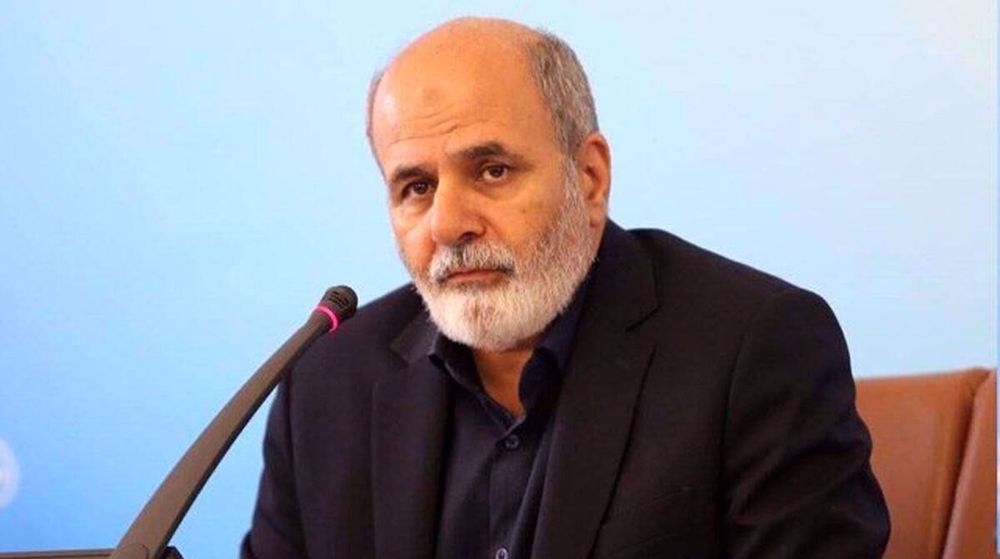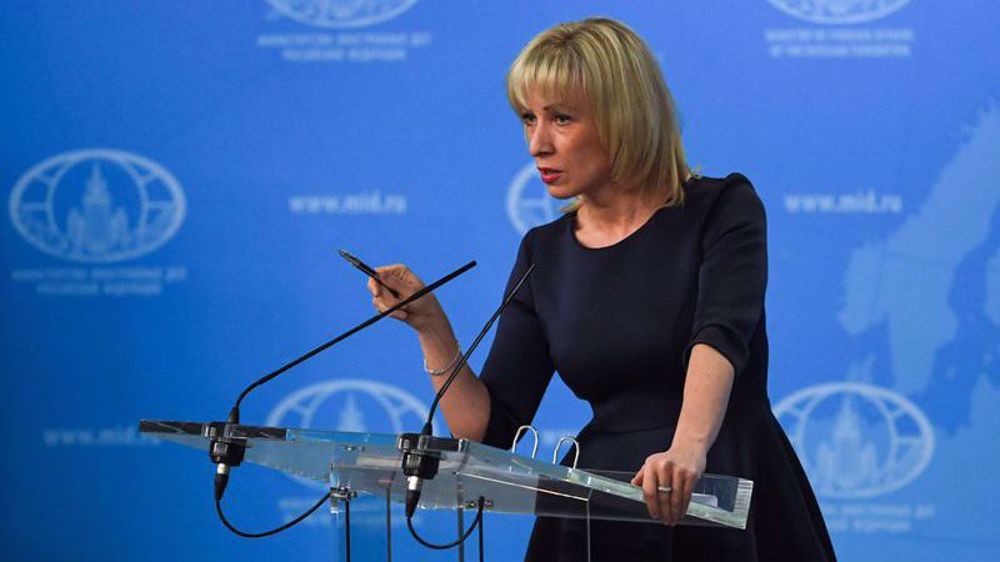Iran president urges faster, more transparent steps to save JCPOA
Iranian President Hassan Rouhani has urged the remaining signatories to the 2015 nuclear agreement between Iran and six world powers to act faster and in a more transparent way to preserve it after the US move to pull out of the agreement.
President of the United States Donald Trump withdrew Washington in May from the landmark Iran nuclear agreement, officially known as the Joint Comprehensive Plan of Action (JCPOA), reached between Iran and the P5+1 group of countries in 2015, and decided to re-impose unilateral sanctions against Tehran.
Under the deal, Iran undertook to put limits on its nuclear program in exchange for the removal of nuclear-related sanctions.
"Iran has fulfilled all its promises in the JCPOA and, taking into account the unilateral exit of America from this agreement, it [Iran] expects the other sides to speed up their plans to safeguard this agreement and make them more transparent," Rouhani said in a phone call to French President Emmanuel Macron on Monday.
He added that the remaining parties to the JCPOA shoulder a heavy responsibility to save the landmark deal after the US withdrawal.
"Iran wants to preserve the JCPOA, but if the outlook for Europe's practical plans is not clear with respect to giving guarantees on financial and monetary channels, oil sales, insurance and transportation, it will adopt other measures," the Iranian chief executive pointed out.
Iran's Foreign Minister Mohammad Javad Zarif said on Saturday that the Islamic Republic is still waiting for Europe's guarantees on the sale of Iranian oil and banking relations.
"The European Union was supposed to carry out some measures, including the preservation of the sale of Iranian oil and the preservation of banking channels, which we are still waiting [for Europe] to do," Zarif said.
In defiance of warnings from the European Union, the JCPOA signatories and many international players, Trump signed an executive order on August 6 re-imposing a first round of sanctions on Iran, which were lifted under the nuclear deal, to levy "maximum economic pressure" on the Islamic Republic.
The sanctions cover Iran’s purchases of the dollar, its trade in gold and precious metals, and its automotive sector. A second batch of bans will be re-imposed in November with the aim of curtailing Iran’s oil exports and shipping sectors.
Iran's First Vice President Es’haq Jahangiri said on August 19 that Tehran is looking for solutions to continue selling its crude oil after the United States re-imposes its sanctions on the country’s energy sector in early November.
Speaking in an interview with IRNA, Jahangiri noted that European countries have told Iran's Foreign Ministry that they will be taking measures before US sanctions come into effect against the country's oil and banking sectors to make up for any possible losses that Tehran may suffer.
Read more:
- 'Dreadful' future awaits world if nuclear deal collapses: Iran's Salehi
- Nuclear deal remains diplomatic triumph despite US exit: Iran FM
- Europeans must give necessary guarantees on JCPOA: Ayatollah Khamenei
- Russia, China say they will keep their commitment to Iran nuclear deal
- Europeans must bear expenses for long-term interests: Iran FM
France will make all-out efforts to save JCPOA: Macron
The French president, for his part, said Paris would make its utmost efforts to keep the nuclear deal alive and would undertake all its responsibilities under the JCPOA.
Macron added that France and other parties to the nuclear accord have made great efforts to save it after the US withdrawal and are looking for different trade and financial mechanisms in this regard.
Speaking at the US Congress on April 25 on the final day of a three-day state visit, Macron said his country will not leave the Iran nuclear deal amid US efforts to persuade European parties to the agreement to withdraw from it.
"We signed it, both the United States and France," he said, adding, "We should not abandon it without having something substantial and more substantial instead. That's why France will not leave the JCPOA, because we signed it."
Read more:
Iran’s former pres.’s martyrdom date registered in natl. calendar
Israeli prosecutor admits still can’t find October 7 'rape' victims
Qassam Brigades warns Israel will pay ‘in blood’ for its aggression
Yemeni security forces dismantle Saudi, British espionage network
VIDEO | Press TV's news headlines
Canada's PM Trudeau resigns, suspends parliament till March
France's former president Sarkozy on trial over 'Libyan case'
I'm undeterred in my pursuit of justice against Israeli soldiers despite threats: Lawyer












 This makes it easy to access the Press TV website
This makes it easy to access the Press TV website